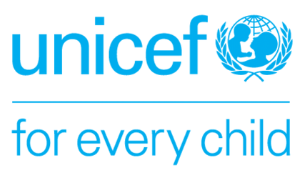Lead implementing countries/entities:
UNDP
Initiative description:
UNDP is spearheading a global initiative to accelerate financing across climate, nature, and development objectives by supporting country-led efforts to integrate financial strategies through national platforms and institutional reforms. In the lead-up to the 2025 FfD4 Conference, UNDP has convened dialogues through the INFF Facility Partner Meeting in Spain, the 3rd Prep Comm, and the Hamburg Sustainability Conference. These events emphasized the importance of aligning SDGs, NDCs, NBSAPs, and national development strategies into coherent, actionable, and investable pathways that respond to the triple planetary crisis of climate change, biodiversity loss, and pollution.
Experiences from countries such as Egypt, Maldives, The Gambia, Ethiopia, and Cabo Verde demonstrate how integrated financing strategies — led by ministries of finance and coordinated across sectors — enhance policy coherence, reduce duplication, and improve the efficiency of both public and private investments. Integrated National Financing Frameworks (INFFs) and country platforms are being used to support institutional reforms, enable pipeline development, and promote economy-wide and all-of-society approaches. These platforms serve to embed climate and biodiversity finance into broader development strategies through instruments such as carbon pricing, green taxonomies, biodiversity and climate budget tagging, and investment matchmaking platforms.
Despite significant advances, financing needs remain immense. Developing countries require an estimated $2.4 trillion annually to implement their NDCs, and the biodiversity finance gap alone stands at $700 billion. The Paris Agreement and Kunming-Montreal Global Biodiversity Framework together call for $500 billion annually in external contributions toward sustainable, nature-positive, and climate-resilient development. UNDP supports the implementation of these frameworks across more than 150 countries through a $5 billion climate and nature portfolio. Flagship initiatives—including the Climate Promise, Nature Pledge, BIOFIN, and the INFF Facility—support the development of NDCs, NAPs, NBSAPs, and Biodiversity Finance Plans, ensuring they are integrated into macro-fiscal and institutional systems.
This initiative promotes a systemic strategy focused on strengthening policy coherence across climate, biodiversity, and land use targets; fostering cross-sectoral interventions with measurable co-benefits; and unlocking finance through innovative instruments like blended finance, thematic bonds, sustainability-linked fiscal policy, and nature-based solutions. The approach also includes removing harmful subsidies, introducing carbon levies, embedding biodiversity co-benefits into carbon markets, and supporting Indigenous Peoples and Local Communities through grant mechanisms.
Specific actions (measurable and time-bound):
• Convene at least 3 high-level policy forums between 2025 and 2027—including through INFF Facility Partner Meetings, FfD4 processes, and COP side events—to align public and private actors, foster knowledge exchange, and mobilize political and financial commitments for integrated financing strategies.
• Support at least 15 countries in 2025–2026 to operationalize integrated financing frameworks that align and leverage resources across SDGs, NDCs, and NBSAPs. Activities will include embedding climate- and nature-positive investment signals in policy institutions, fiscal reforms aligned with GEF and GCF priorities, and cross-sectoral coordination across ministries.
• Establish matchmaking platforms in at least 5–7 countries to connect finance supply and demand across climate, nature, and development. These will leverage tools such as PISTA, the Green Finance Platform, and Timbuktoo. By 2027, they aim to mobilize over $1 billion in investments in sectors like sustainable agriculture, renewable energy, biodiversity conservation, and pollution mitigation.
• Catalyze private capital through blended finance instruments and policy reform. In at least 5 countries, financing strategies will deploy tools such as revolving funds, thematic bonds (green, blue), and first-loss guarantees. These will be supported by enabling policy frameworks like green taxonomies, ESG disclosure systems, and aligned fiscal measures.
Scope of the initiative:
FfD Action Areas:
• Domestic public resources
• Domestic and international private finance
• International development cooperation
• Debt and debt sustainability
• Science, technology, innovation and capacity building
• Addressing systemic issues
• Data, monitoring and follow-up
Geographic Focus:
Global, with a focus on LDCs, climate-vulnerable countries, and high-biodiversity regions in Africa, Asia, and Latin America
Focal points:
Christopher Marc Lilyblad
Policy Specialist, SDG Finance and NDCs, Sustainable Finance Hub, UNDP
christopher.marc.lilyblad@undp.org
Claudia Ortiz
Climate Change Strategies Specialist, Climate Hub, UNDP
claudia.ortiz@undp.org
Onno van den Heuvel
Global Manager, BIOFIN, Nature Hub, UNDP
onno.vandenheuvel@undp.org














